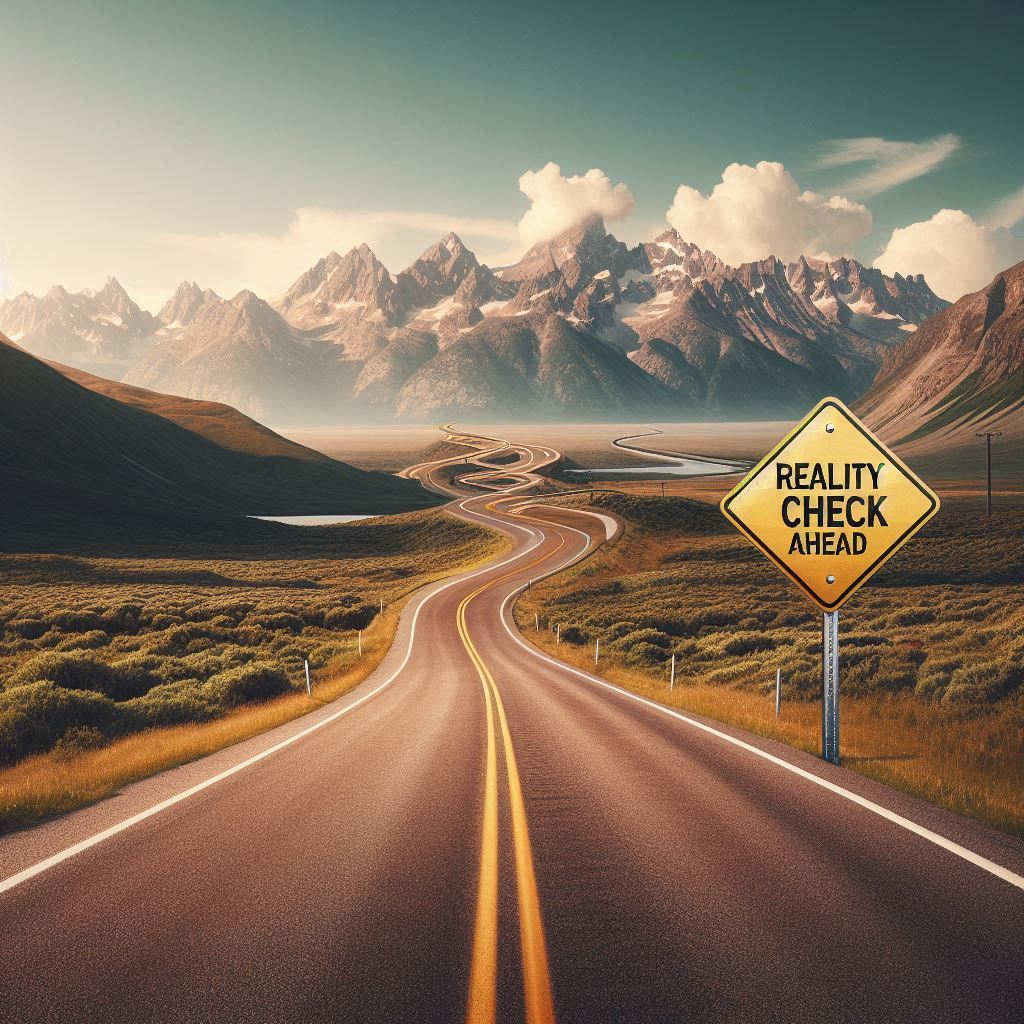The last blog article was about 4 questions that a worldview should answer: The questions of origin, meaning, morality and destination. And no matter whether Pope Francis, Donald Trump, Taylor Swift, religious or non-religious people, everyone has a worldview. And a worldview usually provides answers to these questions. Now it is important that these answers are true.
Some say there is no truth. Now is this statement true or false?! Some say that truth can only be known through the methods of modern (natural) science. Now: can I understand this statement through modern (natural) science?! No, it is a statement ABOUT science. And truth sometimes has something unpleasant about it: sometimes we don’t like it. However, things are true or false regardless of whether we like them or not. It’s not good to put together your worldview out of things just because you like them.
To find out which worldview is true, we need to look at certain facts and observations. Many facts and observations are secondary and worldview independent. These things are not relevant here. Other things, however, are more important. Here are some examples:
- Our universe exists: that’s clear, otherwise we wouldn’t be here, and I wouldn’t write anything. But why does anything exist at all?
- Our universe seems to have a beginning. This is a finding from the Big Bang theory, which is the most widely held view within cosmology.[1] There are differing opinions regarding the beginning of the universe, but different views exist on every scientific topic.
- Closely related to this is the fact that our universe is about 13.8 billion years old.[2]
- There is also strong evidence that the universe is fine-tuned for intelligent life.[3] There is fine-tuning on a cosmic level, at the level of our galaxy, our solar system, and with regard to the Earth.[4] And at the same time, the universe is finely tuned for its observation. [5]
- It is also evident that life exists. But how did life arise?
- Objective moral values and duties: good and evil are moral values. Moral duties are things that should or should not be done, i.e. doing something can be either morally right or wrong. As already described in the previous blog article, objective means independent of people’s opinions. For example, „to say that the Holocaust was objectively wrong is to say that is was wrong even though the Nazis who carried out the Holocaust thought that it was right; and it would still have been wrong even if the Nazis had won World War II and succeeded in exterminating or brainwashing everybody who disagreed with them, that everyone believed the Holocaust was right.“ [6]
- On the one hand, the world is full of beauty, people love each other and sacrifice themselves for each other, but on the other hand, it is also full of suffering and pain. Evil happens to good people and many bad people live a long prosperous life.
- Consciousness: Our consciousness is a fundamental fact. Each of us is aware of its own existence. But where does consciousness come from and how can it arise?
- Near-death experiences of millions of people.
- Reports of miracles and other seemingly supernatural phenomena.
- The doctrinal statements and claims of different world religions.
- The statements, claims and teachings of Jesus of Nazareth, the founder of Christianity.
- ….
The list can be arbitrarily extended, and I will write detailed blog articles on some of these points or other points in due course.
The question is which worldview can best explain these and other facts and observations!
In one of the next blog articles, I will write about various criteria that will help answer these questions. Two examples of such criteria are:
- Explanatory scope: How many facts are explained?
- Explanatory power: How well does a worldview explain the facts?
In addition, I will give a brief overview of different worldviews in another blog article.
[1] A good introduction to the Big Bang is given by the following book: Luke A. Barnes and Geraint F. Lewis. The Cosmic Revolutionary’s Handbook (Or: How to Beat the Big Bang)v(Cambridge University Press, 2020).
[2] Ibid., 255.
[3] Geraint F. Lewis; Luke A. Barnes. A Fortunate Universe: Life in a finely tuned cosmos. (Cambridge University Press, 2016).
[4] Guillermo Gonzalez und Jay W. Richards, The Privileged Planet (20th Anniversary Edition): How Our Place in the Cosmos Is Designed for Discovery (Gateway Editions, 2024).
[5] Ibid.
[6] William Lane Craig, On Guard: Defending Your Faith with Reason and Precision (David C Cook, 2010), 131.


Leave a Reply